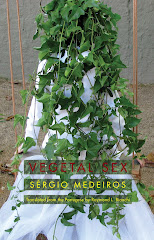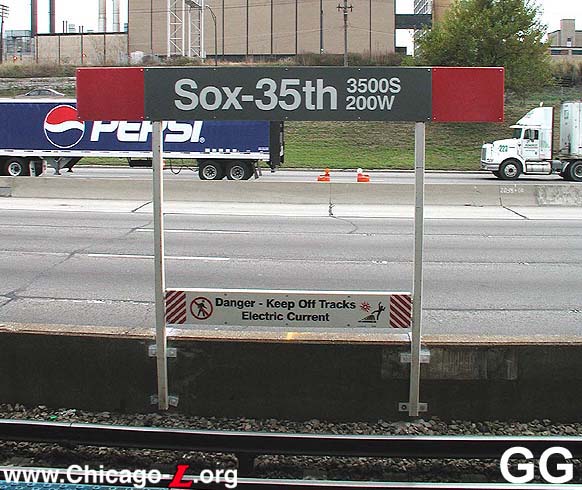
When Barack Obama gave his speech in Philadelphia on race he acknowledged something that only a Chicago based politician could have- that not all Working Class Whites are Racists and that they have often been used as whipping boys by Liberals and African American activists for their legitimate fears.
The fact that Obama admitted this and understands that the dialogue between "white ethnics" and African Americans is broken is as good a reason as any to elect him president. Because he can see both sides means maybe we can move beyond George Wallace and Stokely Carmichael.
My life (I was born in 1967) was punctuated by three events. These events hit me early in life but to this day they are viscerally part of me. The first was the 1967 Newark, NJ riots. My mother is from Belleville, NJ and when she was growing up it was a leafy suburb of Italians five miles from the nice middle class city of Newark. That is where they settled when they moved from Italy and I remember as a child the clean and safe two and three family houses and their patriotic and interesting occupants. It was an area in decline in the early 1970's but it was obvious it had been a nice place once.
My grandfather (also Ray) was a knife grinder or Moleta. He started out on a Brooklyn street sharpening knives and he built the American Grinding Company into a large business- when he died in 1980 he left a comfortable retirement for my grandmother and thousands came to his funeral. He spoke Italian, German, Yiddish, Hungarian and some Chinese and he knew every restaurant and butcher shop in Essex and Bergen counties he was a figure.
One of my earliest memories, I think I was four or five was going to visit a butcher shop that he did the knives for and asking him why every other building on the street, Springfield Avenue, was either burned, boarded up or an empty lot? He told me because "they" rioted a few years before an all the businesses were burned. For a five year old this was a strange idea? Why would people burn down the businesses of my Grandfather's friends?
Later in life we moved to Chicago. We had a family friend who lived in Chicago, in the Austin neighborhood. This lady was a nice Italian lady who knew my grandparents. But over a few months we stopped visiting her home and she moved away- losing the house she lived in for 30 years. According the my parents her neighborhood "changed" and "they" had changed it. This profound sense of loss and the resentment felt by people like my family is why for many years Democrats lost votes in our communities. It does not make it right but it is important to not discount its impact.
Finally when I was 8 in 1975 I sat in the living room with my Air Force Veteran father and watched as helicopters lifted off the rooftop of the American Embassy in Sai gon. My father had many friends who served in Viet Nam and who died there. This was the first time I ever saw horror on my father's face. The Vietman veterans I knew were all "ethnic" and they served out of honor and duty and our nation treated them like refuse when they returned. This too fueled resentment of "them".
In Nixonland, a book by Rick Perlstein the political attitudes of my "people" are chronicled. The real result of the 1960's, for all the good that was wrought was a fissure where people like my relatives- (my Grandfather was a delegate for Adlai Stevenson in 1956)- and my parents became Republicans. In 1980 the last year of my Grandfather's life his last political contribution was to Ronald Reagan.
An era of political paralysis- that currently damages our country still because of the profound fissure that the events that I felt as a small child millions of people who should be voting Democratic voted for Reagan and Bush and Bush. People who should be voting their interests voted against them because of "them" and our nation slowly shifted from the united nation of justice to the swing group-pressure group nation we live in today.
In Perlstein's book he masterfully tells us how the real and legitimate fears of people like my parents and grandparents were used by cynical politicians to win votes and divide America. The images of police dogs and marchers that morally convicted White America were replaced with "kill Whitey". "Whitey" moved away, voted Republican, and made sure that much of the progressivity of the 1960's was rolled back or destroyed. Good people whose gut would have supported progressive politics voted reactionary because they felt that Liberals sided with the rioters and not them.
This was Nixonland.
Nixonland however is ending. The America that I grew up in where fear of "them" can be used to divide people is coming to its end. Michelle Obama and I are not that far apart in age and I bet if Michelle's Dad and my Grandfather Ray has sat down for a shot and a beer they would have gotten along. But because politicians turned Michelle's father into "them" that never happened. This is not to say that racism is not a real problem- this is not to say that the rioters were not criminals- but what we need to ask is what did our republic benefit from these divisions? I cannot believe that every Black family that moved into Austin (chicago) or Newark, NJ was a problem? Yet the neighborhood in Newark where Philip Roth wrote his greatest works is today devoid of Jews because "they" moved in.
Nixonland is ending- and perhaps Obamanation is coming- is because Barack Obama understands this tension and he understands that we are all in this together. Unlike the Nixonland mentality he knows that we need to build something in unity because his very existence comes from this reality. So now we wait for the election. Will memories of riots, changing neighborhoods and resentments cause America to miss its chance to elect the person who could end the cycle?
The Republicans will continue to play these cards. As George Wallace said in 1963 "no one will ever out-ni***r me again. " But I hope that there are more people who were born to families like mine who is remember another slogan-
Yes We Can.





